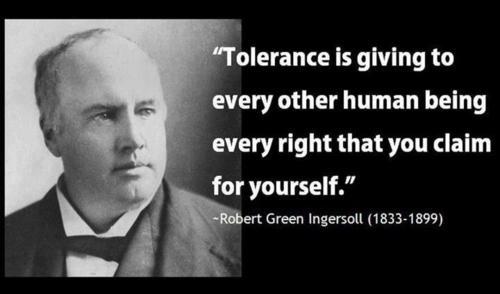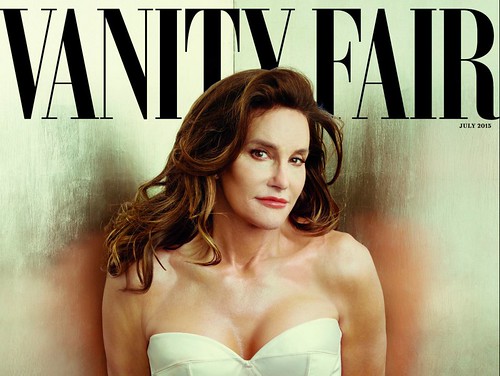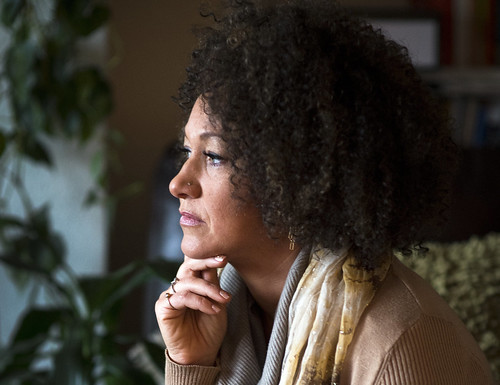Four years ago, I wrote my first piece for Lipstick and Politics. Entitled, The C Word (No, not that one), it was my attempt to give a voice to Conservatives like me–to show that we are more than the caricatures you see on television and in the movies. Since that time, I have been increasingly discouraged and frustrated by what feels like an attack on my conservative values. Frankly, I have felt a range of emotions regarding this assault, from confusion, to anger, to disappointment, and even amusement and how absurd things have become.
The following is an exchange representative of what I see going on around me more and more frequently:
Person A: I love cheese-every kind of cheese. Cheese is amazing. It’s delicious. It is the best food ever. You must respect my viewpoint because Tolerance.
Me: Oh, okay. I can see you love cheese. That’s cool. I’m not really a cheese fan though. It upsets my stomach, but hey I’m glad you enjoy it. Me? I prefer oranges. They’re my favorite.
Person A: What? No, you must clearly agree with me that cheese is the best.
Me: Wait, I already said it’s cool if you think that, go ahead, but I think something else.
Person A: You are WRONG! What, you hate cheese now?
Me: No, I think you are overreacting here. I don’t hate cheese. I don’t care if you eat cheese. I just don’t agree with you that it’s the best…
Person A: Wow. You are so narrow-minded!
Me: Wait, I thought you said we were supposed to be tolerant—
Person A: Well yes, of cheese lovers. Clearly we are rational people. Orange lovers are just hateful and ignorant for not embracing cheese.
Me: Um, okay then…
Of course, these conversations aren’t typically about cheese. You can put just about any issue in there–global warming, abortion, the conflict in the Middle East, etc.–but the concept is the same. For a nation whose favorite buzzword seems to be “tolerance,” we really only tolerate certain points of view. I consider myself a conservatarian– a conservative with a libertarian streak that wants people to be left alone, which is what tolerance is designed to support. The word tolerance is defined as a fair, objective, and permissive attitude toward opinions, beliefs, and practices that differ from one’s own. As seen in the above exchange, however, only one point of view is truly tolerated, and it is expected that everyone jump in and agree, or be ridiculed, and risk being labeled “hateful” or-gasp-“intolerant.”
As I said, I have a strong libertarian streak in my conservatism. I have written pieces on my personal choice to remain celibate unless or until I remarry, as well as pieces supporting the right of Christian companies, colleges and other organizations to operate according to their own belief systems. However I have never suggested that all people live by my moral code, nor that all colleges and businesses must follow the model used by Hobby Lobby or Chick-Fil-A. I have simply stated that each of us has the right to live as we see fit, and to allow others to do the same. A road of mutual tolerance, so to speak.
Unfortunately, I do not see this embraced by those who most loudly beat the tolerance drum. I cannot understand why this sentiment is only extended to the more liberal positions on most issues. Take gay marriage, for example. Personally, I would prefer the government get out of marriage altogether, recognizing contracts for legal partnerships and letting churches/religious institutions handle marriage ceremonies, which would be spiritual versus legal covenants.
Alas, we must deal with things as they are. I believe that if two people want to be joined together and there is a venue willing to host the ceremony, then go ahead and do your thing. I also believe that if there are churches, reception halls, or yes even service providers (caterers, florists, etc.) who do not feel they can in good conscience support a union that violates their core religious beliefs, they should not be compelled to participate. (As an aside, while this is generally a topic centered on same-sex marriage, I would point out that the Christian faith in particular does not support couples having sex and/or cohabiting before marriage, or individuals who cheated on their first spouse marrying their affair partners after getting a divorce. There are a host of reasons a particular provider may feel they cannot support a particular wedding, and I think they should have the right to pass on the request to participate). This isn’t me saying, “You can’t do that!!” It’s me saying, “You CAN do that, but you can’t force others to endorse/facilitate your choice.” Why is this considered hateful and intolerant? There are countless service providers out there ready and willing to offer their services for a variety of occasions–why target the ones who don’t wish to participate? Is this being fair, objective, and permissive toward opinions, beliefs, and practices that differ from one’s own? I don’t think so.
Even Sir Patrick Stewart, a strong supporter of gay rights, has stated that he doesn’t believe Christian business owners should have to participate in anything that conflicts with their beliefs.
There are a variety of issues on which only one viewpoint is tolerated by the mainstream. If I say I believe global warming has occurred, but global cooling has also occurred, somehow I am ignorant and anti-science, despite the fact that during the mid-1980s, my fifth grade science class was repeatedly warned that the world was entering a new Ice Age, and that we should be prepared for such a calamity. When I tell people that I am personally celibate and have taught my children that our Christian faith calls on us to remain abstinent until marriage, I am told that I am being unrealistic. Why aren’t my views tolerated, too?
I think what is the most frustrating for me personally is that the rules seem to be incredibly inconsistent–dare I say, fluid. In recent weeks I have seen this portrayed on the national stage through the mainstream media/liberal response to two individuals: Caitlyn Jenner and Rachel Dolezal.
Rachel Dolezal, President of the Spokane NAACP, has been vilified for being something she is not. She has been accused of, among other things, appropriating black culture, committing fraud, and even of being mentally ill. Many liberals have expressed outrage that a white woman would dare to use the identity of a black woman to advance her career while never having to actually experience any of the injustices that have routinely been visited upon real black women.
While I understand that concern, I can’t help but look at the recent media worship of the person formerly known as Bruce Jenner’s choice to identify as a woman. When Jenner proclaimed, “Call me Caitlyn,” he was lauded as being brave, for finally living as his authentic self, who shall henceforth be referred to as “her.”
I have to wonder how this new identity can be called “authentic” when it requires surgery, hair extensions, makeup, fake nails, and padded bras to be fully realized, but I’m considered judgmental for merely asking the question.
Still, it doesn’t escape my notice that Caitlyn got to live most of her life as Bruce Jenner–Bruce never had to worry about glass ceilings, or equal pay, or equal rights, or sexual harassment, or accusations that her hormones were making her crazy. Caitlyn got to emerge as a woman after Bruce laid all of the groundwork for her; is she not calling herself a woman without having to experience the injustices visited upon women?
Even Jon Stewart pointed out that Caitlyn will now ‘get’ to endure the challenges of being a woman that Bruce never had to experience. Still, Jenner was immediately welcomed into the fold, breaking the Twitter record for reaching one million followers in four hours. Perhaps Rachel would have been welcomed, too, if instead of flying under the radar, she’d had the opportunity to have a sit-down with Diane Sawyer and a spread in Vanity Fair, where she announced, “Call me Black.”
I have tried to play the game. I’ve tried to understand. Okay, I think to myself, Caitlyn Jenner is now a woman–despite still having a penis and a Y chromosome–because she says she is, so we must accept that. Okay. Then, Rachel Dolezal is black–despite being born white and having white parents–because she says she is, so we must accept that.
Of course, even as I make such observations I can hear the arguments against what I have said. Trust me, voices from the Twitterverse have already reached out to tell me that I am conflating two separate concepts. Race, they say, is static. It cannot be changed. Gender, however, is fluid. A person can change his or her gender identity but not one’s racial identity. To that I say, “Says who?” It really does depend on whom you ask. While current, liberal scholars may insist that gender is a fluid concept, this has not been the standard for the bulk of our human existence. Every major department store has a “men’s” and a “women’s” section–you can shop for men’s or women’s clothing, jewelry, shoes, cologne…everything is labeled. Even our restrooms are labeled “men” and “women”–only in very recent months/years have some businesses begun to offer gender-neutral restrooms. When I go to the doctor, or fill out basically any kind of paperwork, I have to check a box–male, or female. I have yet to encounter a form with other options, although I have been told they exist in some locations across the country.
Dr. Paul McHugh, former psychiatrist in chief at Johns Hopkins Hospital, has written on this subject many times. He responded to Jenner’s announcement with an op-ed in the Wall Street Journal, similar to one he wrote exactly one year ago. Among other things, Dr. McHugh noted, “’Sex change’ is biologically impossible. People who undergo sex-reassignment surgery do not change from men to women or vice versa. Rather, they become feminized men or masculinized women.” Mind you, this man is not some random commentator–he is a successful, experienced psychiatrist–yet his views are not tolerated.
Dolezal put on bronzer and braids and we are told that this is “blackface,” terribly offensive to “real” black people…. Jenner put on makeup, false eyelashes, fake nails and hair extensions and is applauded for being real. How is that not “womanface”? Why is one disrespectful and one laudable? Why is Rachel trying to be something she is not, but Jenner is being true to herself?
Feminist author Naomi Wolf shares my confusion. In a Facebook post over the weekend, responding to a Guardian piece on Dolezal, Wolf noted, “I find this essay nonsensical… Why should what you call yourself ‘have to make sense’ to others? This writer has offered zero reason that Caitlyn Jenner can do it and Rachel Dolezal can’t. I think if we all know that racial identity is what you choose (A right we defend furiously when light skinned mixed people choose ‘black’) why can’t Dolezal choose her race? How does this not smack of the ‘pure blood’ that is such a bad idea with Aryan or Jewish or any other identity? Including ‘white’ ? I think she is entitled to dress as she wants wear her hair as she wants and claim the identity she wishes. Claiming racial or other identity should be read as a statement of intention or passion not a statement of ‘fact’.”
With every passing day, I feel more and more of an outsider. My opinions and even my personal values are at best mocked and at worst scorned by those who tell me I must be tolerant, even as they dismiss my point of view. I try to learn the rules, to see if I can make sense of them, but I’m criticized for trying to apply the rules equally to everyone. If we can’t truly have a conversation where we seek to understand each other, I am not sure how we move forward together.



